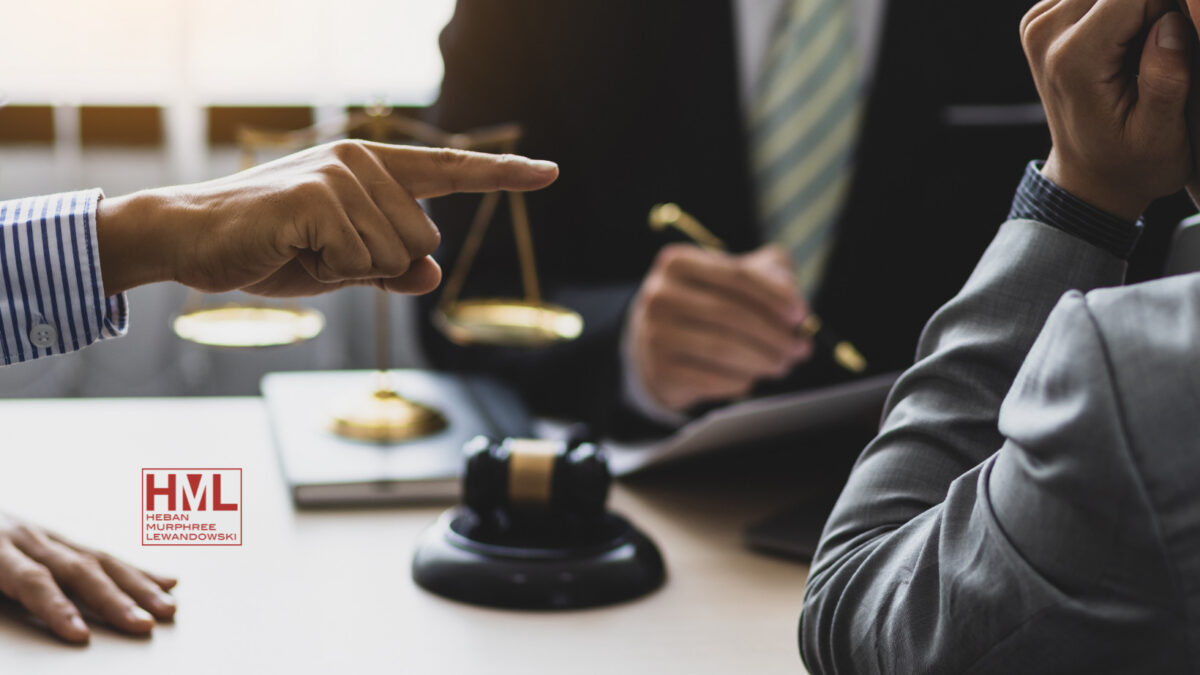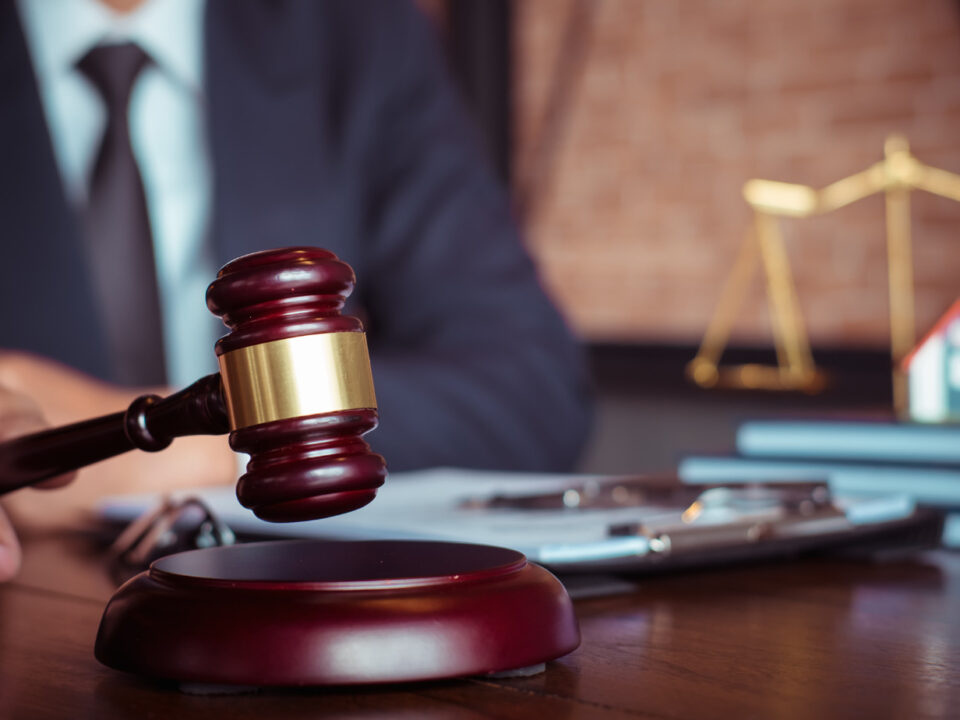- EXPERIENCED LAW FIRM IN TOLEDO, OH
- (419) 662-3100
How to Prove a Will is Invalid

Challenges of Inheriting Across Multiple States
September 9, 2024
How Partition Actions Work in Property Disputes
November 10, 2024Common Evidence for Contesting a Will
Contesting a will is a complex legal process that involves challenging the validity of a will based on specific legal grounds. While emotions often run high during these disputes, courts require clear, compelling evidence to support any challenge to a will’s authenticity or the testator’s intent. Whether the contest is based on undue influence, fraud, lack of testamentary capacity, or improper legal formalities, the strength of your evidence plays a crucial role in determining the success of your claim.
This article thoroughly examines the types of evidence most commonly used in will contests and how they contribute to building a strong, legally sound case.
Why Evidence is Fundamental
In probate litigation, wills are generally presumed valid unless proven otherwise. Contesting a will requires valid legal grounds and evidence that directly supports the claim being made. This evidence must demonstrate to the court that the will does not reflect the true final wishes of the testator or that it was improperly executed.
Courts are unlikely to invalidate a will without strong evidence, even if the contesting party feels they have been unfairly treated.
Medical Records and Testamentary Capacity
A common reason for contesting a will is the argument that the testator lacked the necessary testamentary capacity when the document was executed. Testamentary capacity refers to the legal and mental ability to create a valid will.
To prove a lack of capacity, medical records are critical.
- Mental Health Evaluations: Medical records that document the testator’s cognitive health, particularly if they were suffering from conditions like dementia or Alzheimer’s disease, are often central to a capacity-based will contest. Courts will consider whether the testator had the mental ability to understand the nature of their estate, the beneficiaries, and the act of making a will.
- Physician Testimony: In addition to medical records, the testimony of the testator’s primary care physician, psychiatrist, or neurologist can provide a professional assessment of their mental state at the time the will was created. This is particularly important in cases where the testator’s cognitive decline was gradual but became more pronounced close to the time of the will’s execution.
- Posthumous Evaluations: In cases where there is no existing medical record of the testator’s mental health at the time of drafting the will, posthumous evaluations may be conducted. A forensic psychiatrist or psychologist may review existing records, witness statements, and behavior patterns to assess whether the testator likely lacked capacity.
Financial Records and Evidence of Undue Influence
Undue influence occurs when someone exerts excessive pressure on a testator, leading them to make decisions against their own free will, often benefiting the influencer. Financial records can be crucial in proving this, as sudden, unexplained changes in the testator’s financial habits may serve as red flags. For example, large withdrawals, asset transfers, or the addition of new beneficiaries to financial accounts shortly before the testator’s death can indicate manipulation. These changes, particularly when they coincide with significant access by the person benefiting from the estate, are strong indicators of undue influence.
Additionally, if the testator unexpectedly appoints a new power of attorney or changes the executor of their will without a clear reason, it could further support claims of undue influence. Documentation that shows the timing of these appointments, especially when aligned with the creation of a new will, strengthens the argument. Furthermore, suppose the person benefiting from the will change was involved in managing the testator’s finances or legal matters. In that case, this raises suspicion of undue influence, suggesting that the testator may not have been acting independently.
Witness Testimony
Witness testimony can be some of the most valuable evidence in a will contest, especially when the grounds involve claims of undue influence, fraud, or lack of testamentary capacity. Witnesses offer direct observations of the testator’s behavior and state of mind during the period when the will was executed.
- Testimony from Family Members: Family members, especially those who were frequently around the testator, can provide insight into whether the testator’s mental state was sound and whether they were being unduly influenced by someone else. These individuals can testify to significant behavioral changes or coercive relationships that may have influenced the testator’s decisions.
- Caregivers and Medical Professionals: Caregivers who spent significant time with the testator, such as home health aides or nurses, may have observed signs of cognitive decline or isolation. In some cases, they may have noticed undue pressure exerted by other individuals close to the testator.
- Friends and Neighbors: Individuals outside the family, such as neighbors or close friends, may provide unbiased testimony. They can offer an objective perspective on whether the testator acted independently or appeared to be under undue influence.
Analyzing Legal Formalities and Potential Forgery
A will must adhere to specific legal formalities to be considered valid. Thoroughly examining the will and related legal documents is essential for identifying any irregularities, such as improper execution or forgery. For instance, if the authenticity of the testator’s signature is in question, a forensic handwriting analyst may be used to compare it with other known examples of the testator’s handwriting. Significant discrepancies in the signature could indicate forgery, which is grounds for invalidating the will.
Additionally, witnessing a will must meet legal requirements, such as being signed in the presence of at least two witnesses in states like Ohio. If the will was not properly witnessed, or if the witnesses were beneficiaries, it could lead to the document being invalidated. Other irregularities, like missing pages or handwritten alterations, may also signal fraud or mishandling, further undermining the will’s validity. If proven, such issues can play a significant role in successfully contesting a will.
Circumstantial Evidence in Cases of Undue Influence or Fraud
While direct evidence is always preferred, circumstantial evidence can still be highly effective in will contests, particularly in cases of undue influence or fraud. Circumstantial evidence allows the court to infer that coercion, fraud, or manipulation may have occurred based on the surrounding circumstances.
- Sudden Changes in the Will: If the testator made sudden and dramatic changes to their will shortly before their death, especially changes that favor one individual over others, this could suggest that the testator was under pressure. The court may infer from these changes that undue influence was a factor, especially if the individual benefiting was in a position of power over the testator.
- Isolation of the Testator: If the testator was isolated from family or friends leading up to their death, this could be a sign of undue influence. Testimony or documentation showing that the testator was cut off from loved ones may help prove that they were susceptible to manipulation.
- Disproportionate Inheritance: If one beneficiary’s inheritance is significantly larger than others, particularly if the will was revised late in life, this could be an indication that undue influence or fraud played a role. Courts will often look at whether the testator had a history of showing favoritism toward that individual or if the disproportionate distribution was a sudden change.
The Role of Forensic Specialists
In complex will contests, expert testimony from forensic specialists plays a crucial role in proving fraud, forgery, or undue influence. Handwriting experts, for example, are often called upon to analyze the testator’s signature and compare it with other known signatures. This forensic analysis is particularly important when there is suspicion that the testator may not have had the capacity to sign the document or if forgery is suspected. Any significant differences in the signature can raise concerns about the document’s authenticity and lead to the invalidation of the will.
Additionally, forensic document examiners may be involved in scrutinizing the will for signs of tampering. These experts analyze factors such as changes in ink or paper and alterations to the original text that may not be immediately obvious. Their expertise can uncover fraudulent modifications or other irregularities that could invalidate the will. The insights provided by these specialists are often critical in building a strong case in will contests.
Need Legal Help in Ohio?
Contesting a will can be difficult and emotional, but building a strong case is key to achieving a fair outcome. At HML Law, we understand the importance of combining solid evidence, expert analysis, and witness testimony to strengthen your claim. Having the right evidence can make all the difference, whether it’s medical records, financial documents, or forensic analysis.
We know that probate litigation can be overwhelming, both emotionally and financially. That’s why our experienced estate litigation attorneys are here to guide you every step of the way, helping you gather the necessary evidence and present a compelling case in court. If you’re thinking about contesting a will, it’s crucial to consult with a trusted attorney early in the process. Let us assess the strength of your case and work with you to achieve the best possible outcome.
Reach out to Heban, Murphree & Lewandowski, LLC today for a consultation.









